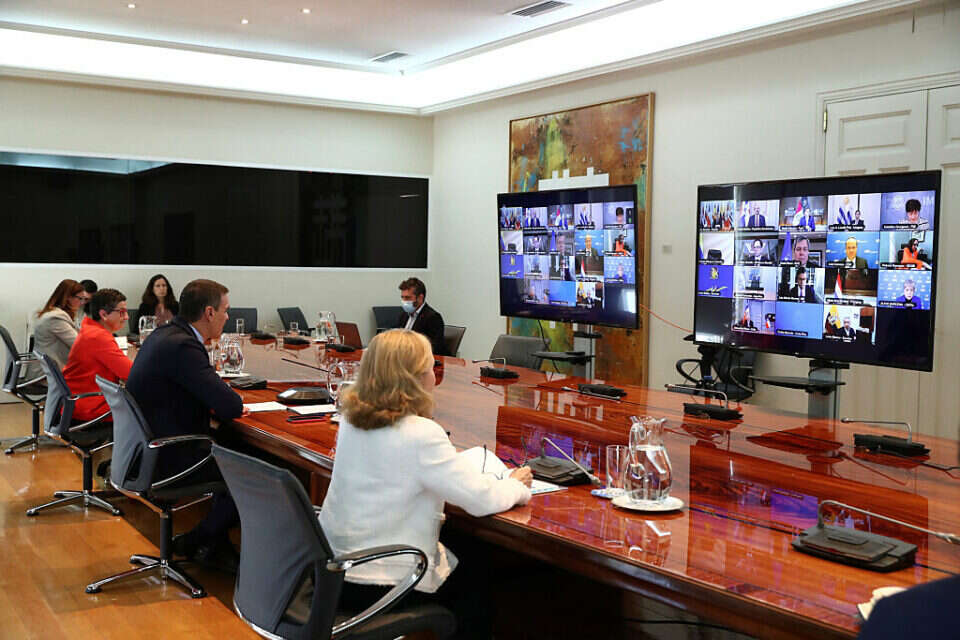A large scientific study recently published in the scientific journal Nature examined the effect of encounters through video software on the creativity of their participants, compared to face-to-face encounters.
Unfortunately, it has been found that creativity is indeed impaired in virtual meetings through screens.
The research question - led by Melanie Brooks, an assistant professor at Columbia University - was whether remote computer-assisted sessions preserve the creativity that exists in office brainstorming sessions, or whether the level of creativity and free thinking decreases as a result of distance.
The study itself began as early as 2016 but received a major boost in the two years of the corona, during which many workers moved to work from home.
"People in a personal meeting move around the room, using objects and using them for creative thinking," Brooks says.
"In a computer session, however, concentration in maintaining eye contact with others comes at the expense of creative activity in the brain. Visual focus on the screen reduces cognition. People are more focused on video when interacting, which impairs the broad and expansive process of creating ideas."
The space is reduced
To test the results of the experiment and make sure they would repeat themselves, they were tested twice - once at Columbia University and once again in real life - on engineers who knew each other from an early acquaintance.
At the university, the researcher divided a group of 602 faculty and students into two parts - in one the subjects were asked to meet in person and develop solutions to a problem, and in the other they were asked to do so via a computer.
At the same time, 1,490 engineers from five countries in Europe, the Middle East and South Asia were asked to divide in a similar way and solve in a new way a problem presented to them.
In both cases there was a decline in creativity and thinking outside the box among those who met virtually on video.
Jay Olson, a postdoctoral fellow at McGill University in Canada and a researcher working on ways to measure creativity, was not involved in the study but was not surprised by the results.
In his opinion, as part of a thinking activity, people usually look at their environment to help create ideas, while in a video session thinking converges to the screen and does not expand in a way that allows for creativity.
"When people are in the same room they look around and see the space, where there are objects and situations that can evoke new associations. In contrast, research shows that computer relationships change our attention so that we are more inward and screen, reducing innovation and creating ideas through observation. On the environment and thinking outside. "
There is no harm in critical thinking
However, before managers run employees back to offices, the researchers note that "working through a computer did not hurt productivity itself or people's critical thinking about innovative proposals, when they had to choose the best idea from a set of ideas. For the other forms of work in front of a computer. "
Professor Alan Langer, a professor of psychology at Harvard University, also qualifies the findings.
According to her, "there is a difference between mere creativity, such as new uses for Frisbee (one of the research questions; AG) and solutions of work.
It is also possible that when the employees are more relaxed after getting to know each other, or that they work from home, the creativity will improve. "
Both Prof. Langer and Dr. Olson, also suggested a future study in which such sessions would be interrupted for states of mind and wander around the room to see how this activity would affect the end result.
Dr. Olson also suggested that following the study only for brainstorming sessions workers would return to work and as a rule he suggested not to be intimidated by one study but to conduct another investigation in the field.
Were we wrong?
Fixed!
If you found an error in the article, we'll be happy for you to share it with us

